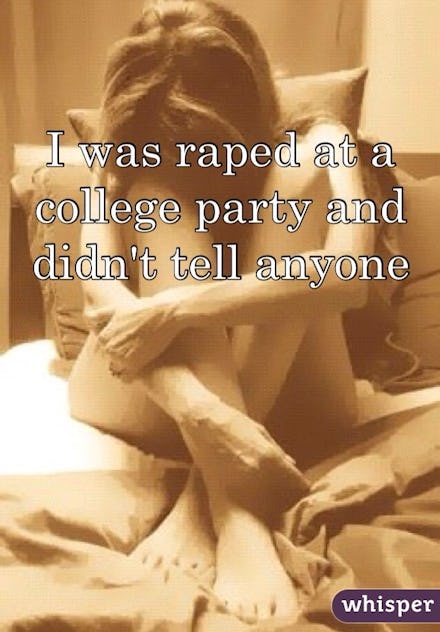19 Sobering Confessions That Capture America's College Rape Crisis

An estimated 17.7 million American women and 2.78 million men have been the victim of an attempted or completed rape. Victims of a sexual assault are three times as likely to suffer from depression, six times more likely to suffer from PTSD, 13 times more likely to abuse alcohol, 26 times more likely to use drugs, and four times as likely to contemplate suicide. Adolescent female rape victims may be over three times as likely to attempt suicide.
Despite a right-wing backlash against the sexual assault awareness movement, social science has demonstrated America's problem with rape is still alive and well. A discomforting survey recently released by Sen. Claire McCaskill's (D-Mo.) office included revelations that 41% of American universities and colleges out of a representative sample of 350 schools haven't launched a single sexual assault investigation in the past five years. More than 20% let the athletic department handle charges against student athletes, a statistic that McCaskill called "borderline outrageous."
"Our system fails repeatedly," Laura Dunn, founder of SurvJustice, told Bloomberg. "We only prosecute stranger rapes, our laws don't acknowledge what consent really means, we ignore alcohol-intoxicated sexual assaults, and we blame victims."
Even when sexual assaults do get investigated — 60% are never reported to the police — the cases are often handled irresponsibly. According to the New York Times, there is likely a backlog of at least 100,000 rape kits awaiting analysis laying around police evidence rooms or crime labs. When 11,000 unprocessed rape kits were uncovered at a Denver crime lab, police were able to identify more than 100 serial rapists. Nationally, RAINN estimates just three offenders serve time for every 100 rapes.
Whisper is a service that allows users to post anonymous messages. These Whispers show the thoughts of survivors of sexual assault in American colleges:
The Whispers were authenticated by the site's editors who describe the process:
"Whisper allows users to share personal experiences and thoughts they might not be comfortable sharing publicly or while tethered to a user profile," said Whisper Editor-in-Chief Neetzan Zimmerman. "The anonymous nature of Whisper creates an entirely safe space for discussion, advice, and support. The only incentive for posting whispers is to be able to participate in an authentic conversation around themes that matter."